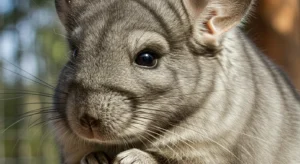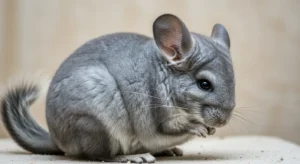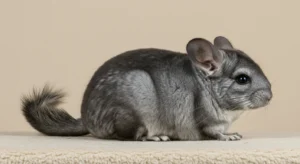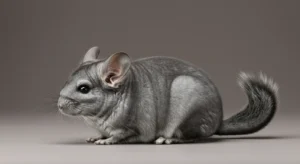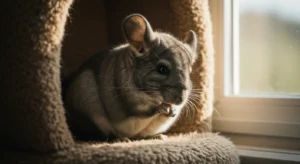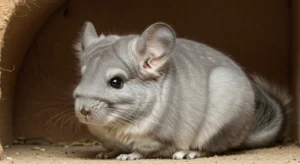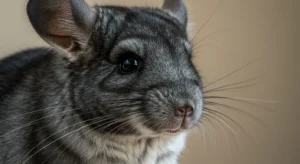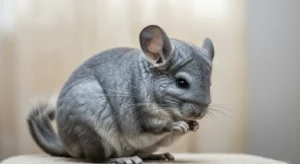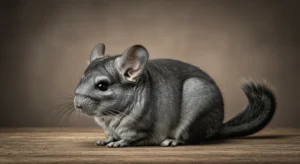Common Chinchilla Health Issues and Prevention
While generally hardy when provided with proper care, chinchillas are susceptible to specific health problems, often stemming from their unique physiology and sensitive systems. Understanding these common ailments and, more importantly, how to prevent them, is crucial for responsible chinchilla ownership. Early detection and prompt veterinary care are vital when issues do arise.
A Sensitive Nature
Many chinchilla health problems relate directly to husbandry – the care provided by the owner. Their digestive tracts, teeth, temperature regulation, and even skin require specific conditions to remain healthy. Deviation from these needs can quickly lead to illness.
Dental Issues (Malocclusion)
This is one of the most frequent and serious health concerns. Chinchilla teeth grow continuously throughout their lives. Malocclusion occurs when the teeth don’t wear down properly, leading to overgrown incisors (front teeth) or molars (back teeth).
- Causes: Insufficient hay/chew toys, genetic predisposition, injury, poor diet.
- Signs: Drooling (slobbers), decreased appetite (especially for hay), weight loss, pawing at the mouth, visible overgrown incisors, facial abscesses (from molar root elongation).
- Prevention: Diet primarily composed of hay (80-90%), constant access to safe chew toys (wood, pumice), regular vet checks (including dental examination). Proper chinchilla dental care guidelines are non-negotiable.
- Treatment: Veterinary intervention is required, usually involving tooth trimming/filing under anesthesia. It often requires lifelong management.
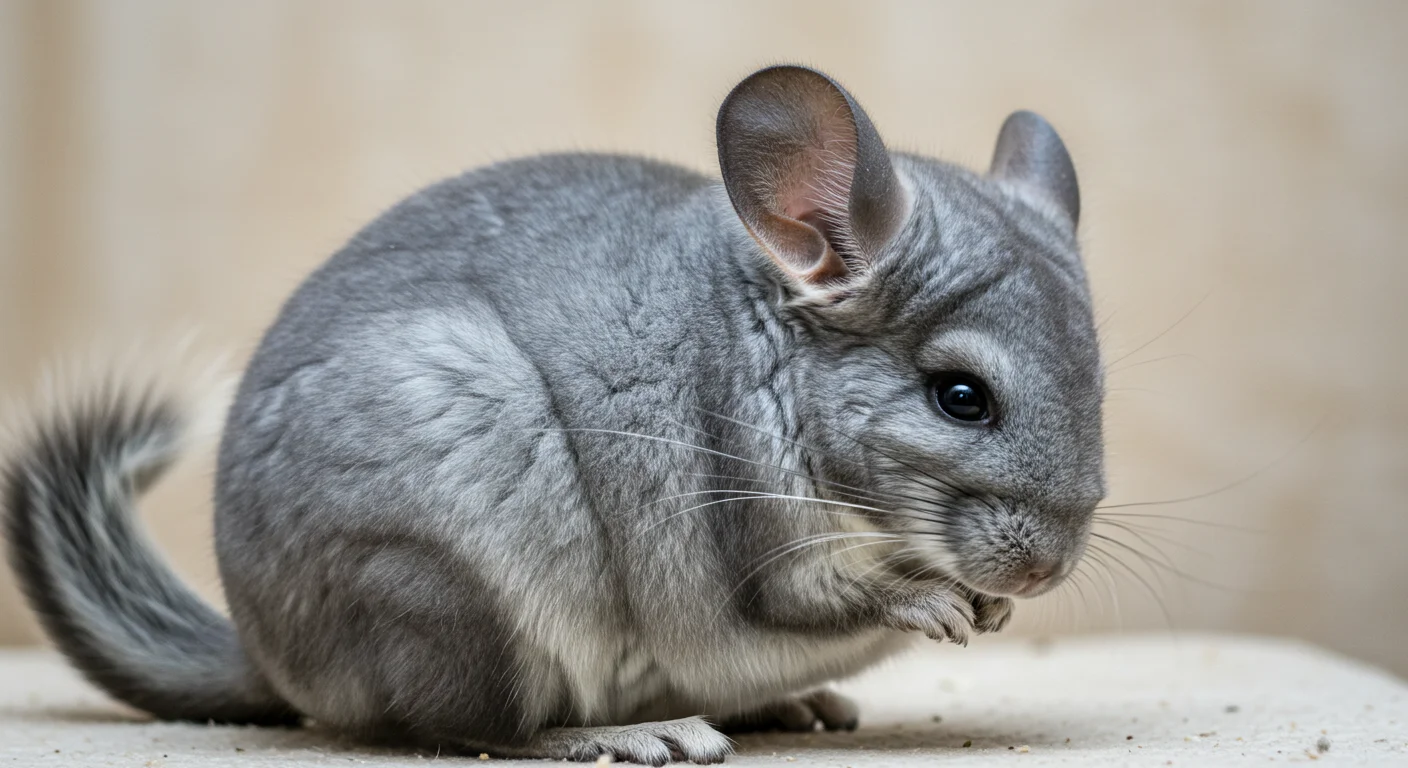
Digestive Problems (Bloat, Stasis, Diarrhea)
The chinchilla gut is delicate and relies on high fiber content and specific bacteria.
- Bloat: Painful, often fatal gas buildup in the stomach or intestines. Causes include sudden diet changes, inappropriate foods (sugary treats, gassy vegetables), stress, or secondary to GI stasis. Signs: Swollen/hard abdomen, lethargy, lack of appetite, stretching, pain. EMERGENCY – immediate vet care needed.
- GI Stasis: Slowing or complete stoppage of gut movement. Causes: Low fiber diet, dehydration, stress, pain (e.g., dental), blockages. Signs: Reduced/absent droppings, small/dry droppings, anorexia, lethargy. EMERGENCY – immediate vet care needed.
- Diarrhea: Loose, unformed stools. Causes: Poor diet (too many treats, sudden changes), contaminated water/food, infections, stress. Signs: Watery/soft droppings, soiled rear end. Can cause rapid dehydration – vet visit recommended.
- Prevention: High-fiber hay diet, limited pellets, NO unsafe treats, constant fresh water, gradual diet changes, minimize stress. Following a safe chinchilla feeding guide prevents most digestive issues.
Respiratory Infections
Usually bacterial, often triggered by poor ventilation, dusty bedding, damp conditions, or stress.
- Signs: Runny nose/eyes, labored breathing, wheezing, sneezing, lethargy, reduced appetite.
- Prevention: Good cage ventilation (wire cage), appropriate low-dust bedding (like kiln-dried pine shavings or fleece liners changed regularly), maintaining correct temperature/humidity, minimizing stress.
- Treatment: Veterinary diagnosis (often requiring chest X-rays) and antibiotics.
Skin and Fur Issues
- Fungal Infections (Ringworm): Circular patches of hair loss, often flaky or crusty, typically around the nose, eyes, and paws. Contagious to humans and other pets. Prevention: Maintain clean cage, provide regular dust baths (but don’t share dust/bath house between infected and healthy animals), quarantine new chinchillas. Treatment: Veterinary diagnosis and anti-fungal medication.
- Fur Chewing/Barbering: Chinchilla chews its own fur or a cage mate’s fur, resulting in patches of short, bristly fur. Causes: Stress, boredom, diet deficiencies, learned behavior, pain. Prevention/Treatment: Address underlying cause – improve diet, provide more enrichment/toys, reduce stressors, separate if chewing cage mate, vet check to rule out pain.
- Fur Slip: Natural defense mechanism where a patch of fur releases if grabbed roughly or stressed. Avoid rough handling.
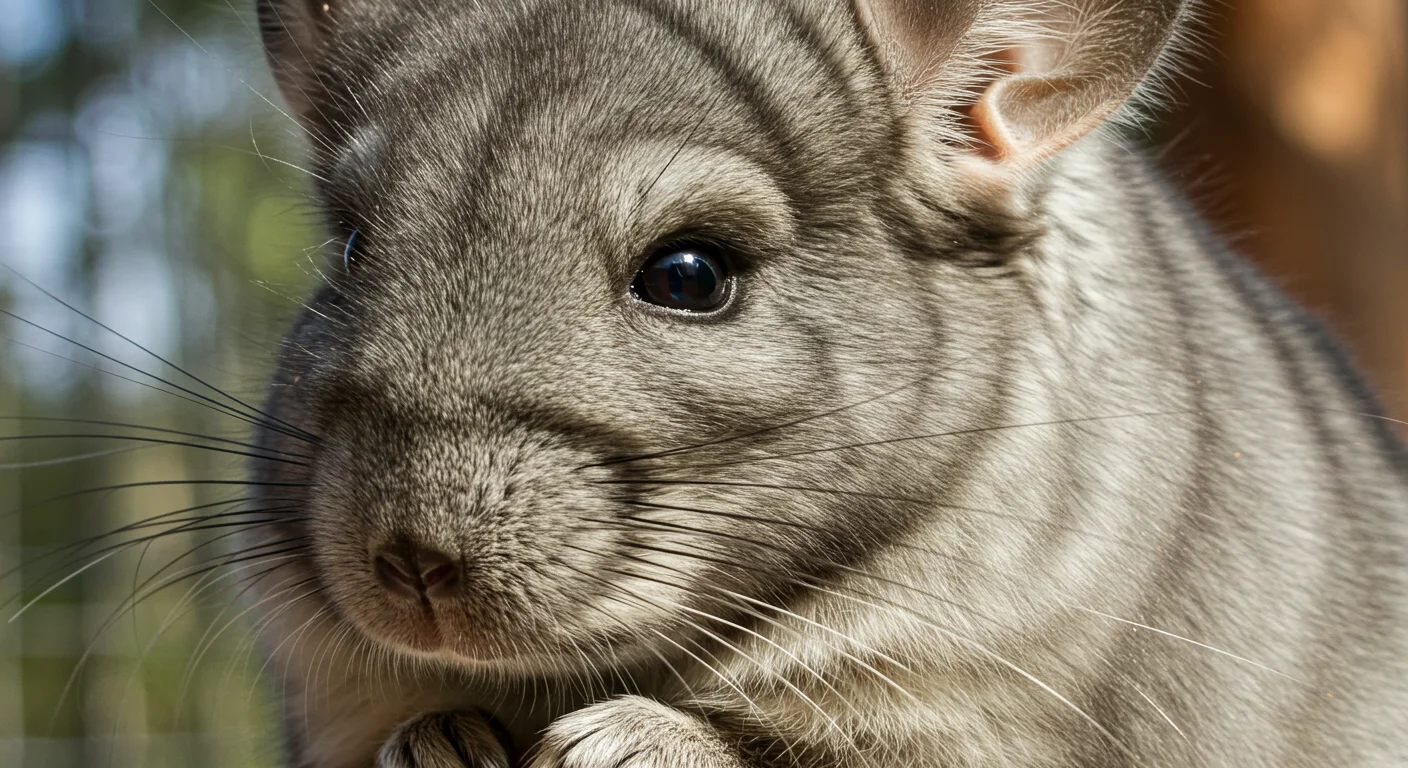
Heatstroke
Chinchillas cannot sweat and overheat easily. Temperatures above 75°F (24°C) are dangerous.
- Signs: Lethargy, panting/open-mouth breathing, bright red ears/gums, lying stretched out, unresponsiveness, seizures.
- Prevention: Keep cage in a cool room (60-70°F / 15-21°C), ensure good air circulation (NO direct drafts), provide cooling granite slabs, avoid direct sunlight. NEVER place cage near heat sources.
- Treatment: EMERGENCY. Immediately move to a cooler area, offer cool (not ice cold) water, dampen ears/paws with cool water, seek immediate vet care.
Heatstroke is often fatal. Prevention is paramount. Monitor room temperature closely, especially during warmer months.
Other Common Concerns
- Eye Infections: Discharge, redness, swelling. Often caused by dust irritation, hay pokes, or underlying dental issues. Requires vet visit.
- Bumblefoot (Pododermatitis): Sores/infection on the bottom of the feet, often from wire flooring or unsanitary conditions. Requires vet care.
- Fractures: From falls or improper handling. Requires immediate vet care.
Prevention is Key
The vast majority of common chinchilla health issues can be prevented through:
- Correct Diet (Hay-focused)
- Proper Housing (Spacious, solid floors, cool temp)
- Regular Dust Baths
- Ample Chew Toys
- Stress Reduction
- Regular Veterinary Check-ups
- Vigilant Observation by the Owner
By understanding the risks and committing to preventative care, you can help your chinchilla live a long and healthy life.
